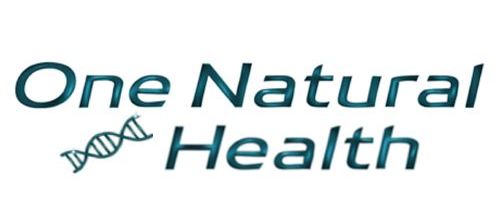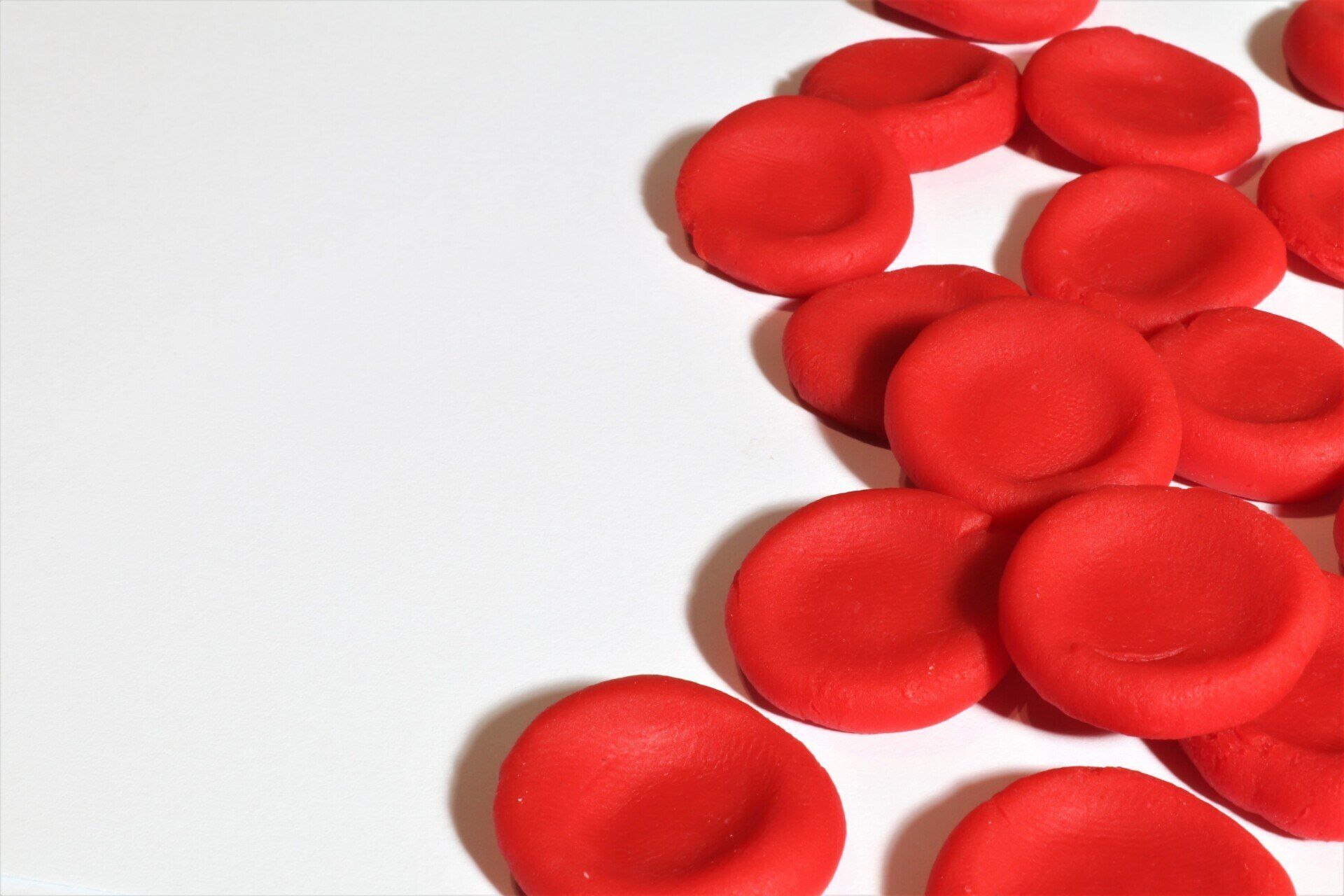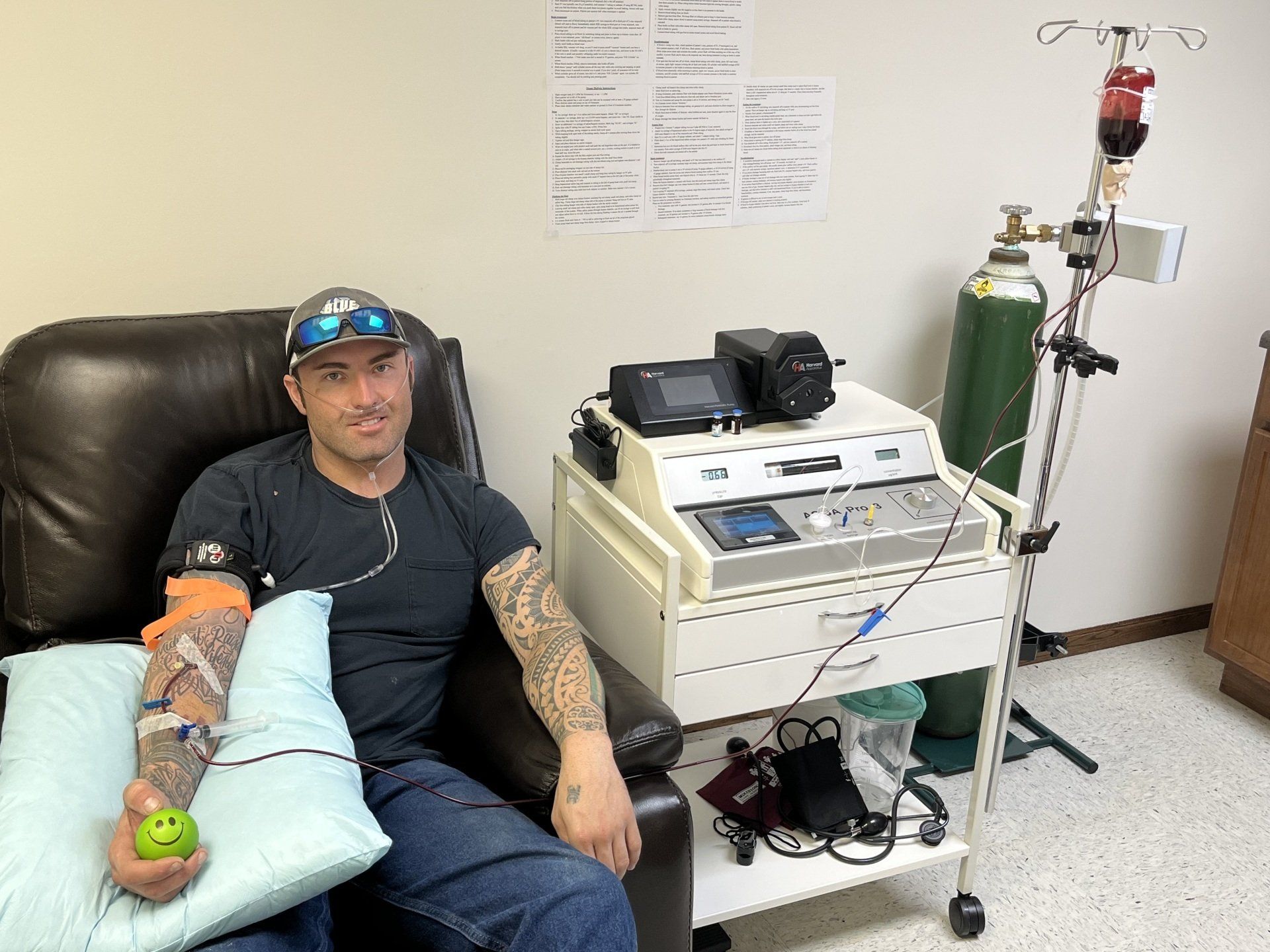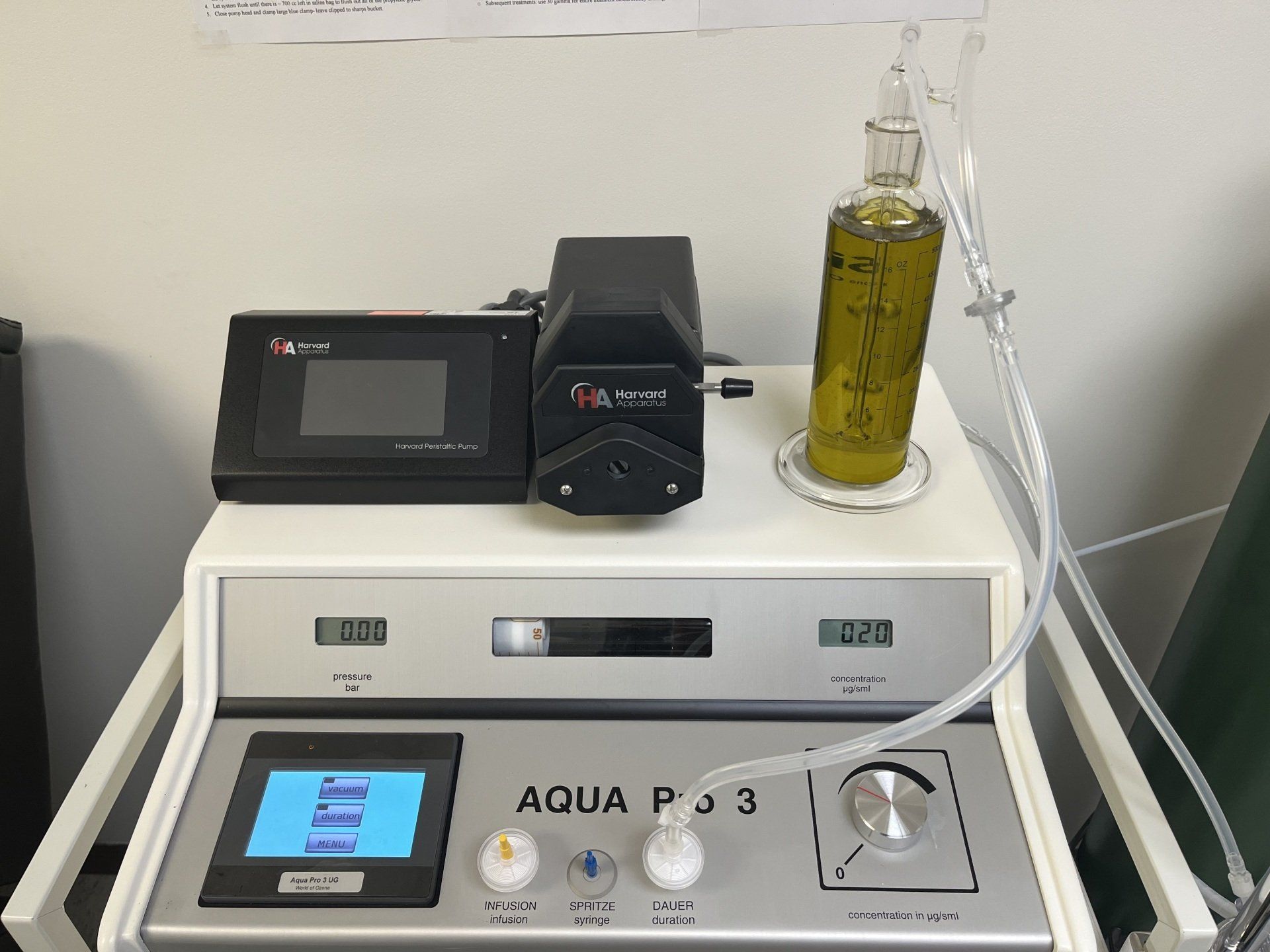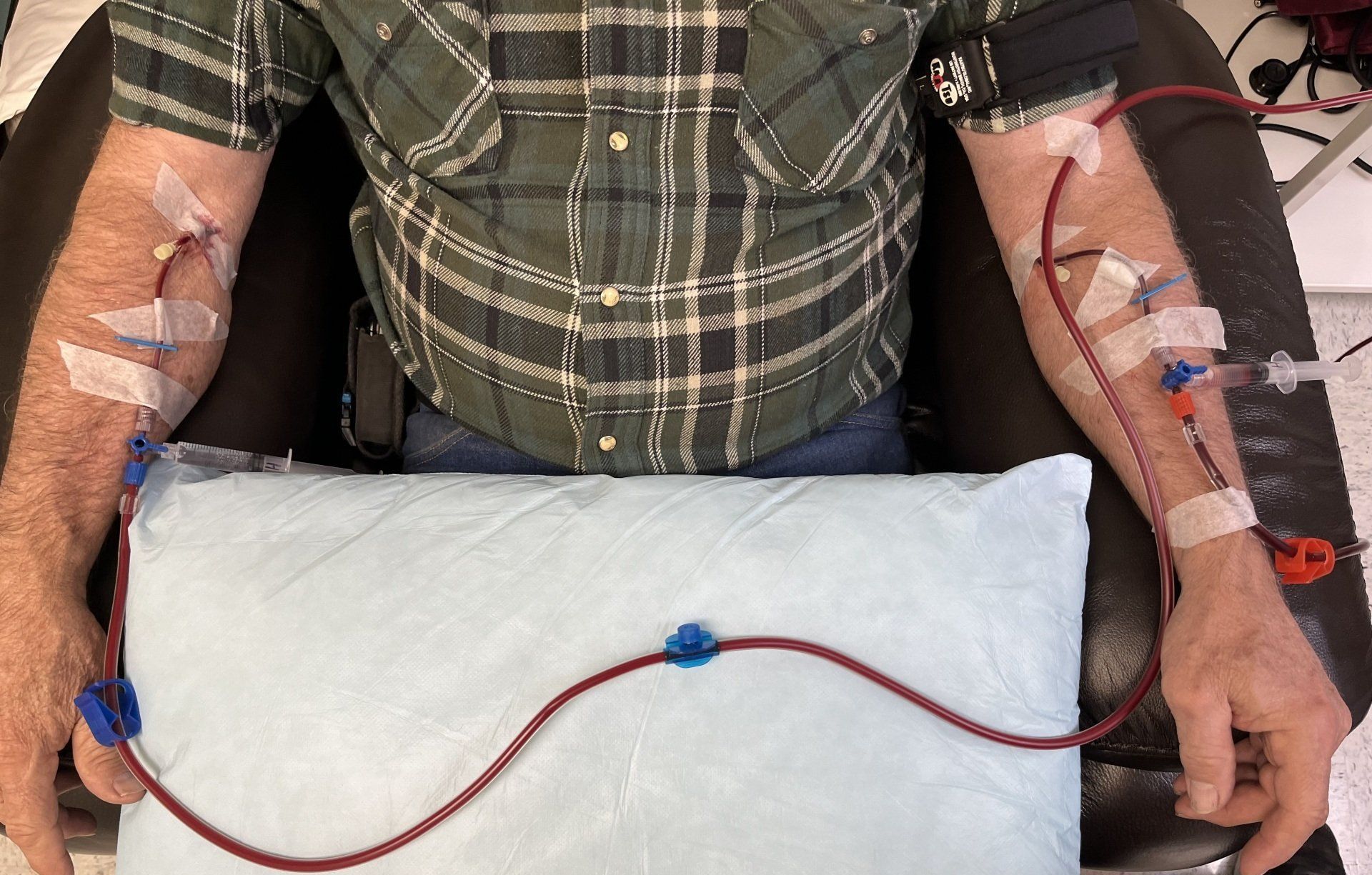METHYLENE BLUE HEALTH BENEFITS
What's Methylene Blue?
Methylene Blue is an antioxidant that restores and repairs cells and their mitochondria engines. Methylene Blue is antiviral, fights brain degeneration, aids in depression, and regulates patients with autoimmune disease and poor oxygen utilization.
Methylene Blue Therapy
One Natural Health uses Methylene Blue in both Intravenous and oral form combined with red light therapy and ultraviolet blood irradiation, Hyperbaric IV 1 to 20 pass Ozone, and EBOO Ozone Therapy for the treatment of Lyme Disease, long haul COVID, aging, and more.
History Of Methylene Blue:
Methylene Blue is a medicine found in the 1800's to be an antiviral therapy, making it the first every drug used in modern medicine. In the early 1900's it was even used in major depression and schizophrenia! Then it was used to prevent and treat malaria in World War II.
In 1891 German physician and Noble Prize winner Ehrlich found in 1891 that Methylene Blue rapidly treats the brain and other diseased tissues in the body. Ehrlich invented the term Magic Bullet for Methylene Blue.
Methylene Blue is now utilized to treat dementia, malaria, cancer chemotherapy methemoglobinemia, urinary tract infections, and carbon monoxide poisoning.
What Are The Mechanisms Of Action For Methylene Blue?
Methylene blue enhances memory and brain function by helping how the brain cells use oxygen, this improves cognition and memory.
Methylene Blue shields the brain from disease, acting as an electron-donor for the cells.
When energy in the body decreases during old age, our mental and physical performance suffers. Methylene blue increases energy through NAD+ production in our cells.
Neurotransmitters and Methylene Blue:
Methylene Blue supports serotonin, which means it can help with anxiety and depression.
Mitochondrial Electron Transport Chain:
Studies have shown significant increases in glucose and oxygen consumption with Methylene Blue use.
Science Jargon
The increase in ATP production give cells more energy to improve overall cognitive function, which includes mood, cognition, and memory.
Methylene Blue aids the brain's respiration by enhancing oxygen. It also donates electrons to the mitochondria's electron transport chain. The same process produces ATP inside mitochondria through the food you consume.
Neuroprotectant Metheylene Blue:
Methylene Blue is a strong antioxidant. Damaging free radicals can hurt our cells, specifically the neurons in our brains. MB can attach to free radicals and stop the free radical damage from its beginning.
Methylene Blue Improves Memory & Cognitive Function
MB enhances memory by increasing the rate of brain cell respiration which is how our brain cells makes use of oxygen. It boosts ATP energy production, which improves brain function, cognition, and memory.
Methylene Blue As A Sirtuin Activator
One of the main purposes of anti-aging is the activation of sirtuin. Sirtuin activation is an effective method to prolong lifespan. Clinical trials have shown Methylene Blue therapy can help stimulate sirtuins. In one study, Methylene Blue increased the NAD (+)/NADH ratio in hepatocytes, and increased SIRT1's activity.
Methylene Blue increases Acetylcholine
Research shows Methylene Blue is an Acetylcholinesterase inhibitor that has a preference for the muscarinic acetylcholine receptors, meaning MB stops destruction of acetylcholine, and increases its availability in the brain.
Methylene Blue is an antidepressant
Methylene Blue is amonoamine oxide inhibitor (MAOI). A MB study showed that 15 mg daily from MB is an effective antidepressant for people suffering from severe depression..
Another study involving the same 31 Bipolar Disorder patients looked at 300 mg daily of Methylene Blue to 15 mg daily. Patients were also taking lithium therapy. The study found that 300 mg dosage in Methylene Blue was a " useful addition to lithium in the long-term treatment of manic-depressive psychosis". Patients had significantly lower levels of depression. [x]
Methylene Blue may be a defender of Alzheimer's Disease
Alzheimer's disease as well as other types of dementia are linked with the accumulation of the Tau protein. Tau. Clinical trials have shown that Methylene Blue blocks Tau creation. The blue is currently being studied as a possible treatment for Alzheimer's disease.
Methylene Blue is an inhibitory effect upon the cGMP pathway. It also influences other molecular activities that are closely connected to the progression of Alzheimer's disease.
Methylene Blue increases the neuron's resistance to form amyloid plaques as well as neurofibrillary tangles. Also, it helps to repair any impairments in mitochondrial function as well as cellular metabolism.
The research also shows that the serotonergic, cholinergic, and glutamatergic systems have a significant role to play in the development of Alzheimer's disease as well as other cognitive diseases. Methylene Blue is a beneficial agent in regulating these pathways.
This is significant as the majority of treatments available for Alzheimer's can only stop the condition before it's recognized. However, Methylene Blue is promising in slowing the effects of dementia and Alzheimer's once it has been diagnosed.
Methylene Blue Uses In Conventional Medicine
A lot of doctors who are aware of this powerful medicine that's been the gold standard for more than 100 years have described it as"a "rescue magic bullet."
Emergency medicine is a field where it's employed for the following reasons:
- To treat anaphylaxis and shock.
- A neuroprotective agent
- To treat drug overdose
- To treat poisoning caused by chemicals (such like carbon monoxide poisoning or poisoning with cyanide)
- The poisoning can be caused by cyanide or bon monoxide.)
Another study found that Methylene Blue may be beneficial in a variety of situations:
- It may help to prevent heart angina and arrhythmia by blocking the nitric oxide synthase.
- It can help with the hypotension (low blood pressure) that is a result of various medical conditions.
- It is a significant way to enhance the flow of blood in patients with liver chronic hepatopulmonary disease and cirrhosis.
- In Septic in shock, MB causes temporary but stable cardiovascular function and blood pressure improvement.
- MB kills an infectious, antibiotic-resistant staph bacteria called methicillin-resistant staphylococcus aureus (MRSA) that can cause dangerous infections in superficial or deep excisional wounds.
- If exposed to light, Methylene Blue can help the hepatitis-C as well as HIV-1 people by blocking the nucleic acid viruses require to make new viruses.
- It may aid in the treatment-resistant plaque psoriasis.
Health scientists are intrigued by the link between the methylene blue as treatment moderate Alzheimer's. It's been established that MB reduces the development of amyloid plaques, as well as neurofibrillary tangles which cause the symptoms of Alzheimer's. It can also aid Alzheimer's patients through repair of mitochondrial function and cell metabolism.
Methylene Blue and Cancer
The latest research indicates that MB triggers the death of cancer cells by causing cell-mediated oxidative stress. In simple English the drug delivers an enormous amount of oxygen to cells, creating a cell environment that is hostile to cancer cells. This finding is a catalyst for ongoing research of MB for treatment of cancer.
The good news is that methylene Blue is generally safe for intravenous injections and oral usage. It is best combined with red light therapy externally, sunlight in moderate amounts, and ultraviolet blood irradiation (UVBI). It is, however, MB is contraindicated for those suffering from severe renal impairment and is generally not recommended for patients with G6PD deficiency. This is an easily managed, inherited condition that triggers the sudden destruction of red blood cells.
A provider should refer all patients to obtain medical clearance in the event of the presence of a G6PD deficiency or kidney or liver disorder. Women who are
pregnant or are lactating should be disinvited from treating methylene blue.
